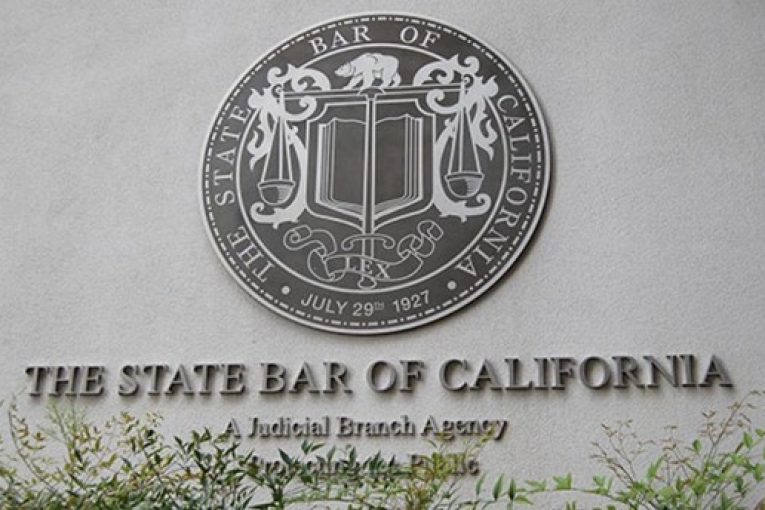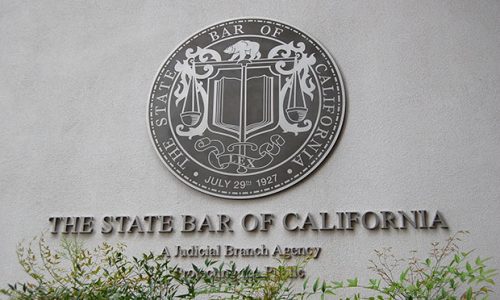

By Robert J. Hansen
SACRAMENTO, CA – During my investigation into the State Bar of California that began last June, I have been led to the conclusion the State Bar protects attorneys, not the public.
After the revelation that now disgraced, disbarred, and indicted Los Angeles attorney Thomas Girardi had been bribing investigators with the State Bar of California, one could not help to think that he could not have been the only attorney getting away with harming and stealing from his clients.
Girardi was disbarred in 2022, and two years ago was indicted for allegedly stealing millions of dollars from Lion Air crash victims in a U.S. Chicago District Court.
Girardi’s criminal trial is scheduled for May 2024, and more than 200 complaints were submitted to the State Bar about Girardi, which took no public action against Girardi until 2021.
Girardi’s influence over the State Bar allowed him to steal from not only the Lion Air Crash victims, but so many that a class action lawsuit has been filed against the California State Bar by former clients of the embattled plaintiff attorney, arguing the agency’s “incestuous relationship” with the now-disbarred attorney allowed him to steal millions of dollars from clients.
“This case exposes the rampant corruption at the State Bar of California and targets the incestuous relationship between Tom Girardi and the Girardi Keese law firm on the one hand, and the State Bar of California and its employees and staff on the other hand,” the complaint read.
Chicago plaintiff attorney Jay Edelson is the founder of Edelson PC, the law firm that turned in Girardi to an Illinois federal judge, citing millions in missing settlement money for the airline crash victims.
Edelson told The Vanguard the State Bar threatened one of his partners who is licensed in California.
“Unbelievably, as they were doing nothing to investigate the lawyers at Girardi Keese,” Edelson said. “They told us—after we were pushing for them to recuse themselves and appoint a special prosecutor—that we had exposure since we might not have exposed the crime scheme early enough. That’s the same Bar that was paid by Girardi to conceal the fraud.”
The plaintiff’s Bar needs to usher in a new era of reform, according to Edelson.
“You’d think there’d be enough deterrents but there are only deterrents if the Bar[s] … would start taking licenses away,” Edelson said on the podcast Lawyers Behaving Badly in March. “And they’re just not.”
Edelson believes the State Bar prefers to discipline small law firms and private attorneys while allowing attorneys like Girardi, Catanzarite and other well-resourced attorneys to essentially steal from the public.
“They pick on the small guys … often it’s minority attorneys or people who just don’t have the same voice so it looks like they’re doing stuff,” Edelson said. “And then the real big fish they let keep swimming.”
State Bar Executive Director Wilson said in a joint judiciary committee hearing last May that, while new policies have been put in place since Girardi was disbarred, new policies won’t change the culture of the State Bar.
“I do have a responsibility … that the culture supports the kind of change that has brought us here today,” Wilson said. “Culture is not something that you change with a list of tactical to-dos.”
The culture Wilson is referring to means the problem of not holding attorneys accountable goes far beyond Girardi or even a handful of individuals.
Don’t just take my word for it. A current investigator with the Office of Chief Trial Counsel (OCTC), the office dedicated to investigating complaints, wrote the organization should be investigated with a fine tooth comb.
“Protect the public, this is a joke,” the current investigator wrote in Dec.
A former investigator said they thought the OCTC was to help the public but it’s to help the lawyers who fund the organization.
“Most people will have their legitimate, horrible complaints against lawyers thrown out. Sad to see,” an investigator said in Nov. 2023.
In 2019, an investigator in the OCTC said the idea was not to investigate attorney misconduct but to draft memo after memo to make it look as if there had been an investigation.
“Nor is it designed to discipline attorneys,” the investigator wrote. “I don’t know what it’s like to work in other areas of the State Bar but OCTC is for all intents and purposes a fraudulent enterprise.”
The California legislature claims to have passed laws to address the failure of the State Bar to hold attorneys accountable.
“Thank you, Tom Girardi, for providing the revelation as to how much reform is, in fact, required to ensure we are protecting consumers,” said Senator Thomas Umberg, Chair of the Senate Judiciary Committee, in closing remarks on the Senate Floor last year.
Unfortunately, that doesn’t seem to be the case.
The amount spent on the Office of Chief Trial Counsel, again, the office dedicated to investigating complaints, has risen from roughly $47 million in 2019 to a little more than $68 million in 2023, according to the State Bar’s annual discipline report released last year.
The number of complaints the State Bar received in 2019 was 16,541, and 15,414 in 2023. The OCTC closed more than 14,000 of those complaints with no disciplinary action taken in every year between 2019 and 2023 except in 2021 when it closed about 13,000 complaints without any action taken.
In 2019, before Girardi, 296 cases were closed with disciplinary action taken, and in 2023, years after the Girardi revelation, only 206 cases were closed with disciplinary actions taken.
More money is being spent on fewer investigations into attorneys who are allegedly harming their clients and the public.
Umberg’s office failed to schedule a time for me to sit down and talk to him about the State Bar.
Kenneth Catanzarite, the center of The Vanguard’s investigation, is seemingly one of several attorneys the State Bar of California appears to be protecting, as it has yet to discipline or hold Catanzarite accountable despite several violations of conduct.
Catanzarite has a history of being disqualified from cases, getting sanctioned and submitting lawsuits on behalf of “clients” who may lack a full understanding of their cases or allegations, according to court records.
Catanzarite has been sanctioned for over $50,000 in three separate cases from 2007 to 2013, according to public records disclosed by the State Bar of California.
More recently, an appellate brief discusses how Catanzarite has “relentlessly harassed Respondent Todd A. Mikles and his various business interests for nearly ten years, initiating more than 17 lawsuits, arbitrations, adversary actions, and other claims, including this matter, against Mikles and companies that he manages or controls in various State and Federal Courts, Bankruptcy Courts, and arbitrations.”
Nine of those 17 lawsuits against Mikles and his business interests were filed by Catanzarite on behalf of an elderly man, Richard Carlson, as the purported lead of a large class of real estate investors.
Carlson, however, testified on February 12, 2020, that he didn’t believe he had suffered damages, was “owed nothing,” was not seeking an attorney when he was solicited at his home by Catanzarite, and that Carlson had “no idea” why he was at a deposition.
Asked how he came to meet his attorney Kenneth Catanzarite, Carlson testified, “Like I said, Tye Winfield directed him out there, gave Ken my address.”
Notably, other lawsuits were filed on behalf of plaintiffs other than Carlson, indicating yet another conflict of interest for the embattled attorney Catanzarite who has a penchant for representing multiple sides of the same or related disputes.
According to records of an arbitration proceeding for yet another group of purported plaintiffs against Mikles’ interests, Catanzarite’s purported clients are now on the hook for attorney’s $1,686,500 fees, costs of $36,200, and expert costs of $114,800 for a total of $1,837,500.
Deborah Breuner-Davis, heiress of furniture maker John Breuner, who made all the desks in the California Capitol Building, was left penniless after being represented by Orange County attorney Kenneth Catanzarite.
“He advised, in writing, I sell the home I was living in, to him, to protect it from foreclosure because another bank (KeyBank) was in the process of illegally foreclosing on my Sun Valley, Idaho, property, which had been sold,” Deborah Breuner-Davis told The Vanguard.
Brenuer-Davis, Mikles and several others have filed complaints against Catanzarite yet he maintains a clean record.
At the beginning of this investigation, the State Bar Board of Trustees Chairman was Ruben Duran, and has since been replaced by Brandon Stallings. Duran was set to be chairman until 2026 according to the State Bar’s website but when asked the State Bar said that Duran’s term was only for one year.
Newly-appointed Bar Board of Trustee Chair Stallings received a formal request from a member of the public on October 20, 2023, and later from The Vanguard seeking public disclosure of all complaints against Anaheim attorney Catanzarite and members of his firm Catanzarite Law Corporation dating back to June 1984.
The State Bar faced a similar request from the Los Angeles Times about Thomas Girardi. That led to a California Supreme Court case that revealed hundreds of complaints against the disgraced attorney. Later still, the State Bar admitted its staff was showered with gifts and bribes by Girardi.
“I believe Catanzarite is bribing staff of the State Bar just like Girardi did for years,” said legal reform advocate Justin S. Beck, who made the request and who has been the target of several lawsuits filed by the attorney Catanzarite.
However, the Bar has refused to be transparent about Catanzarite as it was forced to be about Girardi.
The California Supreme Court rejected a request from Beck and The Vanguard to disclose Catanzarite’s disciplinary history. That case was just like the LA Times’ case that revealed Girardi’s complaints.
The State Bar said it cannot comment on the specifics of any particular pending or closed investigations, which by statute remain confidential.
“The Office of Chief Trial Counsel has made, and continues to make, changes to improve the effectiveness and efficiency of its handling of attorney misconduct complaints,” the State Bar told The Vanguard.
On April 1, 2024, the State Bar will be submitting to the Legislature and the Supreme Court a report discussing these changes and their impacts.
It does not appear State Bar’s purported reform has any practical benefit to the public despite promises from leadership and lawmakers like Umberg.
Until they do, the State Bar and the by proxy state lawmakers seem like they will continue to protect attorneys and not the public.
Any whistleblower with the OCTC can contact Robert J. Hansen at hansenrobj@gmail.com.
